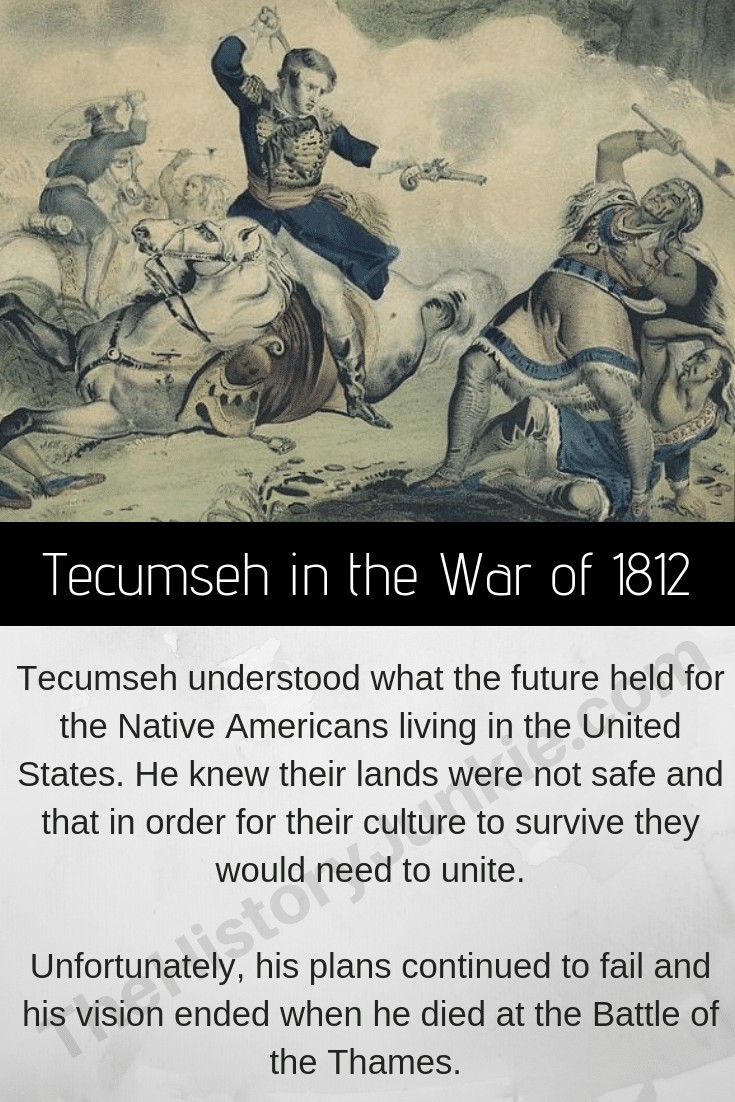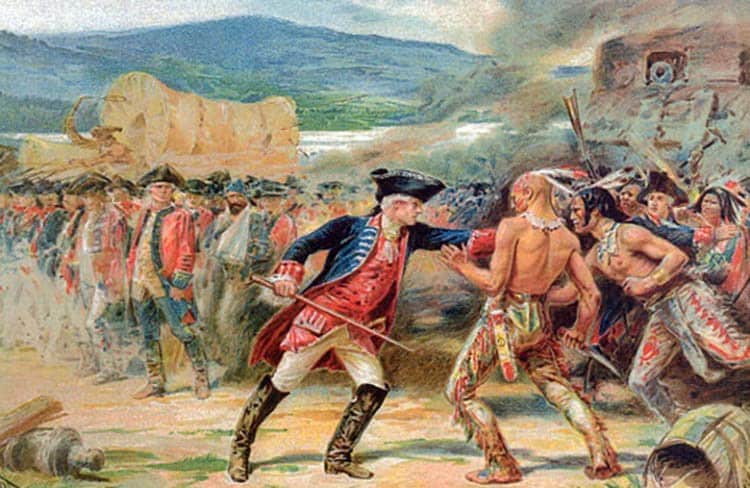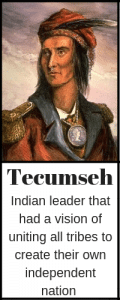Tecumseh, in the War of 1812, was the most influential Native American leader in the United States. After his death, the Indian nations lacked the necessary leadership to forge their own nation.

He had visions of a unified nation of Native Americans that could upset the balance of power on the continent. His vision was ahead of his time, and if he had been able to accomplish this goal, it would have changed the fate of Native Americans throughout American History.
Jump to:
Native Americans during Colonial America

The arrival of Europeans marked the beginning of the end for the Native Americans who lived in both American continents, and by the time of the War of 1812, they had fallen victim to European disease, politics, and American Expansionism.
The Aztecs, Incas, and other Native American powers had been defeated by Spanish Conquistadors, English Settlers, and other tribes that allied themselves with the Europeans. The tribal nature of Indian culture made them easy targets for conquest and never gave them the ability to negotiate effectively with any of the world powers.
It also did not help their cause that they had allied with the losing nation during the French and Indian War and the American Revolution.
By the time of the War of 1812, the Americans had learned how to fight the Native Americans effectively, but the Native Americans still outnumbered the Americans by a wide margin.
Tecumseh saw the divided nations and realized that the only way to halt American expansion was for every tribe to unite, despite their differences, and build their own independent nation.
Tecumseh sought to build the necessary relationships with the tribal leaders and the British government to make his vision happen.
Native Americans During the War of 1812

Unfortunately for the natives, every time it seemed that Tecumseh was gaining traction with his vision, something happened:
- The Battle of Tippecanoe occurred when Tecumseh was away talking with other tribes about a Native American alliance. It also ruined the reputation of his brother.
- British officer Isaac Brock and Tecumseh worked well together and had similar aggressive styles. After successfully capturing Detroit, they won a key victory at Queenston Heights. However, Brock was shot and killed during the battle.
- At the Siege of Fort Meigs, Tecumseh came against his nemesis, William Henry Harrison. General Proctor was in charge of the siege and did not have the same relationship with Tecumseh as Brock. The two leaders quarreled and eventually retreated from Fort Meigs without doing much damage to Harrison and his men.
- Tecumseh finally met up with William Henry Harrison at the Battle of Thames. His men were defeated, and he was killed.
Once Tecumseh died, many tribes pulled out of the alliance. Thus ending his vision of an Indian nation.
British Support of Native Americans
During the War of 1812, Native Americans were vital to the British defense of Canada. This obviously caused a problem with the expanding United States. They viewed British involvement as a violation of their nation's sovereignty.
The British continued to support the Native Americans after the death of Tecumseh and wanted to install a separate Indian nation as a buffer to Canada.
From the British perspective, an independent Indian nation made a lot of sense for three reasons:
- It created a new organized nation that could help keep the expanding United States in check and alter the balance of power in the region.
- It created a buffer for British Canada. Americans always had their eyes on Canada. They invaded it during the Revolutionary War and the War of 1812.
- It saved them money and men in the defense of Canada. At the time, Napoleon was marching on Moscow, and the British were stretched their limits, trying to rid Europe of Napoleon.
The Treaty of Paris was supposed to remove the British presence from the newly acquired American territory. However, the British did not abandon all of their forts and kept many outposts throughout the Northwest Territory.
The British relations with the Native Americans were a direct cause of the War of 1812.
When the war ended, the British removed themselves from the area and abandoned their alliance with the Natives. Without the British backing and the fragmented nature of their tribes, the North American tribes never gained a foothold in the United States again and were continually pushed West.
